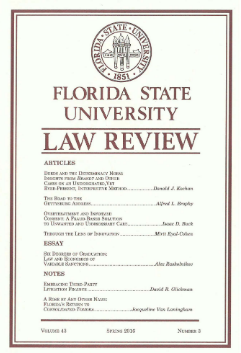Without anyone really noticing it, the primary rationale underpinning intellectual property law has become hollow. New strains of thinking in the fields of economics, psychology, and business management studies now debunk the long-venerated idea that legal authority must provide some artificial inducement to artistic and technological progress. At the same time, the incentive theory is being roundly contradicted by the deluge of citizen-produced digital content that is distributed over the internet without any expectation of compensation. These unfolding events confirm the view that has developed among social scientists: External rewards are, as a general matter, unnecessary for the flourishing of arts, entertainment, and technology.
Contrary to orthodoxy, the great driver of artistic and technological progress is not external, but internal. Call it inherent motivation. People have an intrinsic drive to create. Business firms have natural reasons for innovating. The idea of inherent motivation may be counter-intuitive, but the evidence is compelling. Survey-based studies and even controlled experiments have confirmed this view time and time again. Astonishingly, when it comes to the psychology of the individual, there is even evidence that extrinsic rewards have the opposite of the intended effect and can actually defeat inherent motivation, thus inhibiting creative and inventive endeavor.
The upshot of all this is that is now possible to say with confidence that the classical economic dogma that lies at the heart of intellectual property law is a mistake.
The incentive theory is, and always has been, elegant. The simplicity and transparent logic of the incentive theory is one of its strongest features. But the theory’s attractiveness should not be allowed to hide its very best quality—its falsifiability. The incentive theory yields predictions about the world that can be tested. Specifically, the incentive theory predicts that economic actors will tend not [to] engage in economically valuable creativity and innovation without external rewards. And, as it turns out, digitally networked technologies have been testing this prediction. The evidence is in, and it refutes the theory. What’s more, work in business-management studies and the social sciences is putting together a new, more nuanced theoretical picture of innovation and creativity. That new theoretical understanding—while less elegant as a matter of theory—is manifestly in line with empirical observations. The necessary implication is that thinking about intellectual property must be completely revised.
--Eric E. Johnson, "Intellectual Property and the Incentive Fallacy," Florida State University Law Review 39, no. 3 (Spring 2012): 624-625.

No comments:
Post a Comment